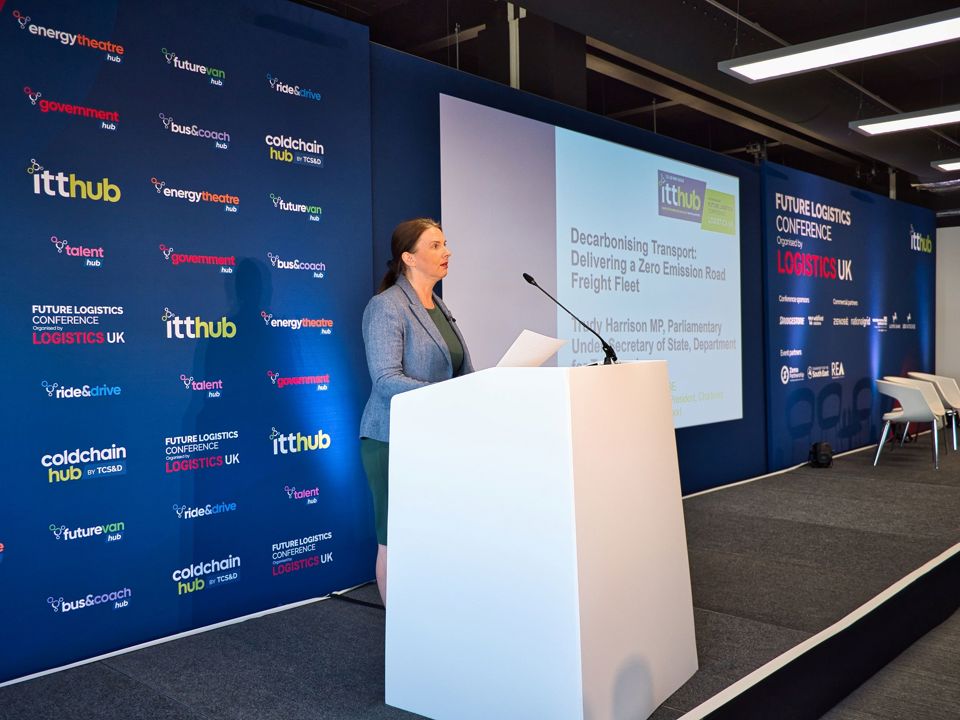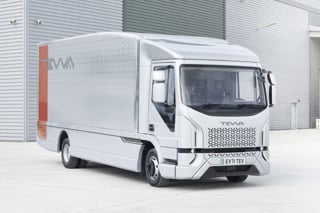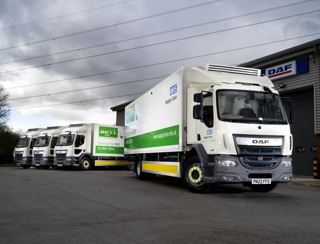The Government has announced it is investing more than £200 million to launch world’s largest fleet of zero emission heavy goods vehicles (HGVs).
Transport minister Trudy Harrison (pictured) revealed that the cash will fund a zero emission road freight demonstrator programme, at Logistics UK’s Future Logistics Conference this morning (Thursday, May 12).
The three-year comparative programme will begin later this year to help decarbonise the UK’s freight industry, with initial competitions for battery electric and hydrogen fuel cell technology launching shortly.
The Government announced last year that it will phase out new, non-zero emission heavy goods vehicles weighing 26 tonnes and under by 2035, with all new HGVs sold in the UK to be zero emission by 2040.
The demonstrations will help gather evidence on the future refuelling and recharging infrastructure needed to drive the smooth transition to a zero-emission freight sector by 2050, says the Department for Transport (DfT).
Harrison said: “Our road freight industry is one of the most efficient in the world and contributes over £13 billion to the UK economy each year.
“But we must accelerate our journey towards our net zero goals, and we’re committed to leading the way globally on non-zero emission road vehicles.
“Our ambitious plans will continue to ensure food is stocked on the shelves and goods are supplied while eliminating fossil fuels from HGVs and making our freight sector green for good.”
An open-call competition will be launched for manufacturers, energy providers and fleet and infrastructure operators to showcase their green technology on UK roads. This will begin with demonstrations of battery electric and hydrogen fuel cell HGVs.
The announcement expands on DfT’s £20m zero emission road freight trials which ran last year, delivered by Innovate UK.
As part of these trials, commercial vehicle manufacturer Leyland Trucks has rolled out 20 DAF battery electric HGVs for use by public sector organisations, including the NHS and local authorities, to support the uptake of battery electric trucks, enabling learning to be gathered from field testing vehicles in a real-world, real-time logistics environment.
This project, along with six successful feasibility studies, is helping prepare for the demonstrations, which will take place at scale over the coming years.
Michelle Gardner, acting deputy director for public policy at Logistics UK, said: “Logistics businesses are committed to decarbonising their operations, but to ensure a smooth transition they need clarity on the path to zero tailpipe emission HGVs.
“The trials announced today will play a crucial role in identifying the right technological solutions to help enable this.
“Given the breadth of the vehicles used across the logistics sector and scale of innovation required to reach net zero Logistics UK is also pleased that Government has launched a consultation to identify potential exemptions to the 2035 phase out date.”
The DfT has also published the full response to a public consultation on phase out dates for the sale of new, non-zero emission HGVs, confirming the scale of our ambition to eliminate carbon emissions from road freight.
Further to this, DfT says it is fulfilling its commitment to consult with industry to identify potential exemptions to the 2035 phase out date for HGVs, weighing 26 tonnes and under, which may need longer to transition to zero emission technologies. The call for evidence opened today (Thursday, May 12) and will last until July 22, 2022.























Login to comment
Comments
No comments have been made yet.